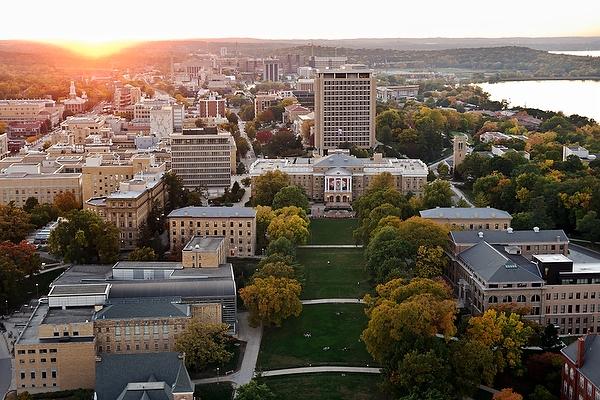With a new state budget that affects various aspects of campus, University of Wisconsin’s student government, the Associated Students of Madison, has been working to see the impact the changes will have on students in terms of shared governance, segregated fees and funding cuts.
Gov. Scott Walker signed the biennial budget earlier this month and vetoed two provisions that would have taken away students’ right to allocate segregated fees.
Segregated fees are the additional fees students are required to pay in addition to their tuition. For the 2014-15 academic year, undergraduates’ segregated fees totaled just over $568.
Non-allocable segregated fees go to student services including University Health Services and Recreational Sports.
Allocable fees, however, are distributed based on a budget set by ASM. ASM distributes these funds to pay services such as city bus passes or support for student organizations, among others.
“We are really thankful that [Walker] took the time to recognize the importance of our traditions and students being in charge of where their fees are going,” ASM Vice Chair Kyla Kaplan said. “The hope is that students will…have more autonomy as they realize how important this is and why students fought so hard to keep it.”
Here's our press release calling on @GovWalker to veto sections of the state budget that curtail shared governance pic.twitter.com/MkQW6AOunV
— ASM (@asmstudentgovt) July 10, 2015
Kaplan said ASM has been working closely with Chancellor Rebecca Blank to maintain the integrity of shared governance, the structures that give students and faculty a voice on campus, which the 2015-17 budget struck from state law.
With the loss of millions of dollars in state funding, Kaplan said it is critical for students to speak up for projects and programs they think are important. She said she hopes ASM can become an outlet for students to voice their concerns.
ASM Chair Madison Laning said now more than ever before it’s important students realize they have a voice in what happens on campus.
“We are trying to get more students involved in civic engagement, so that they voice their opinions about things on campus that they are passionate about,” Laning said. “By using the resources we have on campus, they can then make change happen.”
ASM has many different committees and grassroots organizations. UW sophomore Carmen Gosey chairs the Legislative Affairs committee.
One of the committee’s campaigns includes the Student Regent Selection campaign, which seeks to create a system in which each school within the university would propose two students for spots on the Board of Regents — the governing body of 16 mostly governor-appointed members which presides over the UW System — and from these selected students the governor would choose a student regent, Gosey explained.
One of ASM’s primary goals is to become more “noticeable” with students. Laning noted in the last ASM election alone, only about 7 percent of the student population voted.
Laning said she believes it is important students realize that ASM committees make decisions on many different campus issues.
“ASM is very different than many high school student governments,” Laning said. “The policies and legislation we pass will have an impact on student life on campus.”














